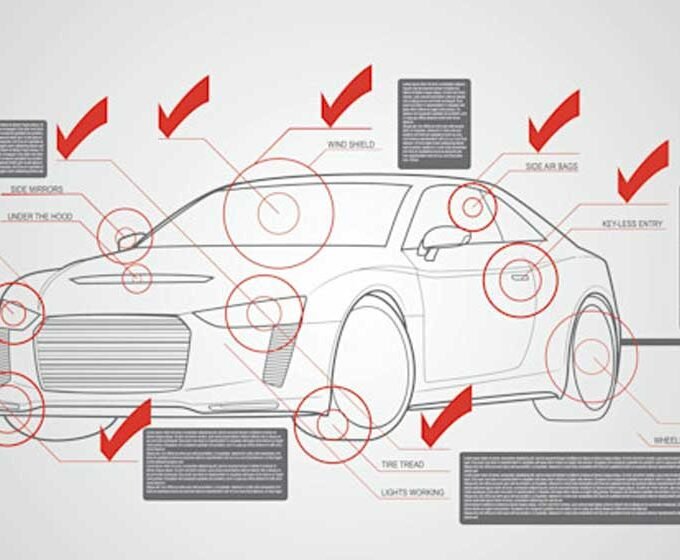The auto market is constantly changing, and for car buyers, it’s essential to stay informed. Did you know that approximately 50 million cars, both new and used, are sold in the United States every year? That’s a lot of cars hitting the roads, and with advancements in technology and shifting consumer preferences, navigating the market can be daunting.
With such a large number of vehicles being bought and sold annually, understanding these changes is crucial for making informed decisions. Whether you’re in the market for a brand-new electric car or considering a reliable used vehicle, knowing what to look for and how to adapt to market trends can save you time and money in the long run.
In this blog post, we’ll explore some key trends shaping the auto market, offer practical tips for car buyers to navigate these changes effectively, and discuss the importance of staying adaptable in the face of future developments. So, let’s jump into the ever-evolving world of car buying!
Understanding Current Auto Market Trends
Right now, the car industry is witnessing significant shifts in consumer preferences, with a notable trend toward electric and hybrid vehicles. As concerns about environmental sustainability grow, more buyers are opting for vehicles that produce fewer emissions and rely on alternative fuel sources.
This shift is not only driven by environmental concerns but also by advancements in technology. This makes hybrid and electric vehicles more practical and affordable options for many consumers.
Another major trend shaping the auto market is the rise of autonomous driving technology. With major players in the industry investing heavily in research and development, self-driving cars are becoming increasingly common on the roads.
This technology has the potential to revolutionize the way we commute and travel. It offers increased safety and convenience for drivers and passengers alike.
The COVID-19 pandemic has also had a significant impact on car buying habits. Even with lockdowns and social distancing measures long lifted across the country, many consumers have permanently shifted towards online car shopping and contactless delivery options.
Tips for Car Buyers
Buying a car can be a daunting task, but with the right approach, it doesn’t have to be stressful. By following some simple tips, you can navigate the car-buying process with confidence and ensure that you find the perfect vehicle to meet your needs and budget.
Research and Education
Before buying a car, it’s essential to do some research. This means learning about different types of vehicles and their features.
You can find a lot of helpful information online, like reviews from other people who have bought the same car. By doing research, you can figure out what kind of car is best for your needs and budget.
Using online resources is also a great way to learn more about cars and the big brands, such as Nissan, Toyota, and Ford. You can visit websites that compare different models and read articles that explain things like how to negotiate with dealers.
Taking the time to educate yourself can help you feel more confident when it’s time to make a decision about which car to buy.
Budgeting and Financing
Setting a budget is the first step in buying a car. This means figuring out how much money you can afford to spend, not just on the car itself, but also on things like insurance and maintenance. It’s important to be realistic about what you can afford so you don’t end up with a car that’s too expensive.
Once you have a budget in mind, you’ll need to think about how you’re going to pay for the car. There are different financing options available, like getting a loan from a bank or dealership, or leasing the car instead of buying it outright. It’s a good idea to explore all your options and choose the one that works best for your financial situation.
Considering Long-Term Costs
As noted above, when buying a car, it’s not just about the upfront cost. You also need to think about the long-term expenses. Some cars cost more to maintain than others, so it’s important to do some research and figure out how much you can expect to spend on upkeep.
Another long-term cost to consider is the resale value of the car. Some cars hold their value better than others, which means you may be able to sell them for more money down the road. Thinking about resale value before you buy can help you make a smart investment that will pay off in the future.
Test Driving and Inspection
Before making a decision, it’s crucial to test drive the car you are interested in. This gives you a chance to see how it feels to drive and if there are any issues you should be aware of. Pay attention to things like how the car handles and whether it’s comfortable for you.
In addition to test driving, consider getting the car inspected by a mechanic. This can help uncover any hidden problems that may not be obvious at first glance. Especially for used cars, a pre-purchase inspection can give you peace of mind knowing that you’re making a wise investment.
Negotiating and Closing the Dea
When you’ve found the right car, it’s time to negotiate the price. Don’t be afraid to haggle, as many dealerships expect it. Just be sure to do some research beforehand to know the fair market value of the car, and be prepared to walk away if the price isn’t right.
Understanding dealer incentives can also work in your favor. Dealerships often offer promotions or discounts to attract buyers, so be sure to ask about any incentives that may apply to you.
Finally, before signing any contracts, read them carefully and make sure you understand all the terms and conditions. It’s essential to know exactly what you’re agreeing to before finalizing the deal.
Find the Perfect Car in Today’s Vehicle Market
To sum up, navigating the ever-changing auto market requires research, budgeting, and flexibility. By staying informed about market trends, considering long-term costs, and embracing new buying experiences, car buyers can make confident decisions that suit their needs and preferences.
Like this blog post? Be sure to check out our other informative articles on a wide range of interesting topics.
















